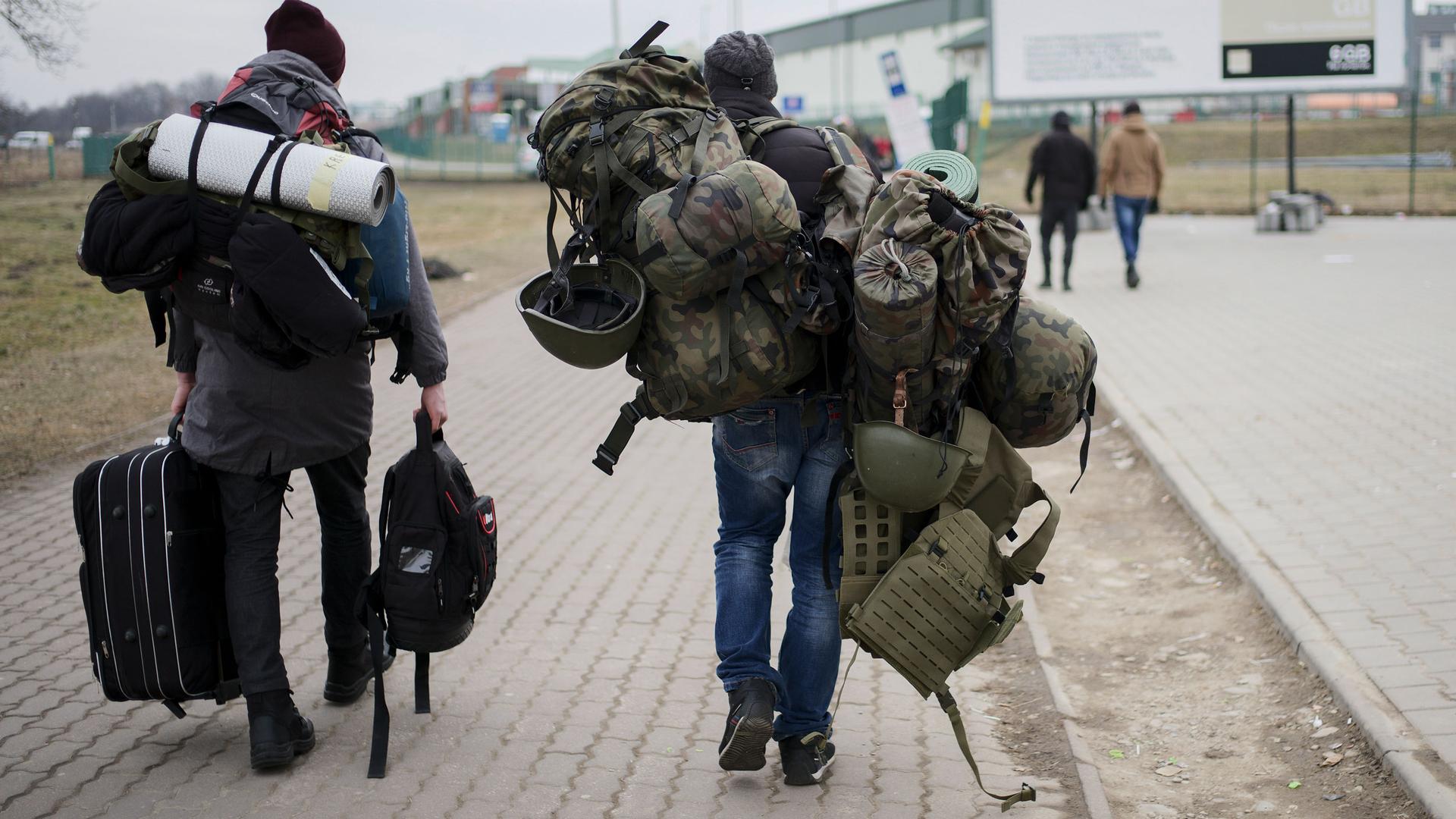When Ukrainian President Volodymyr Zelenskiy made a plea for foreign volunteers to come to Ukraine to support the fight against Russia, about 20,000 people heeded the call — including one woman from Utah.
“It’s just not right to sit on the couch, knowing you can make a difference.”
“It’s just not right to sit on the couch, knowing you can make a difference,” Glenna said, while speaking to journalist Volodymyr Solohub in Kharkiv. Glenna asked to use her first name only due to security concerns.
Related: The Kyiv Symphony Orchestra fights on the war’s ‘cultural front’
On March 31, a little over a month after Russia invaded Ukraine, Glenna flew from from the US to Germany, and then to Poland, arriving on April 1.
Traveling by train into Ukraine took a full day. At one point, she said that she had to walk 6 miles in a snowstorm with all her gear because of a ticket transfer issue.
Once in Ukraine, she made her way to a small pin-up tent with a sign that read, “Legion,” referring to the International Legion for the Defense of Ukraine.
Foreign legion members hail from about 52 countries around the world including Germany, Croatia, Canada, Japan, the United Kingdom and the United States.
Glenna joined a 75-person unit based in Kharviv, eastern Ukraine, as one of few combat medics — and the only female. She does not have formal medical training but briefly worked with an ambulance and served in the United States Navy. She also received some combat training upon her arrival in Ukraine.
Related: ‘Their lives collided with war’: Ukrainian refugees in Poland open their own schools
Her platoon was hit by heavy Russian artillery and cluster bombs, she said. Based just seven miles from the front lines, she said the air raids and missile strikes keep her up at night.
Some of her platoon mates have decided to return home after experiencing intense shelling — and she said can’t blame them.
Related: ‘Home is home’: Ukrainians in Poland consider options as Russia’s war enters new phase
“I just pray to God that I never actually have to [medically] treat one of these guys, because I don’t know how I would be able to do it. … I’d gladly fight by them and die by them. They’re just family.”
